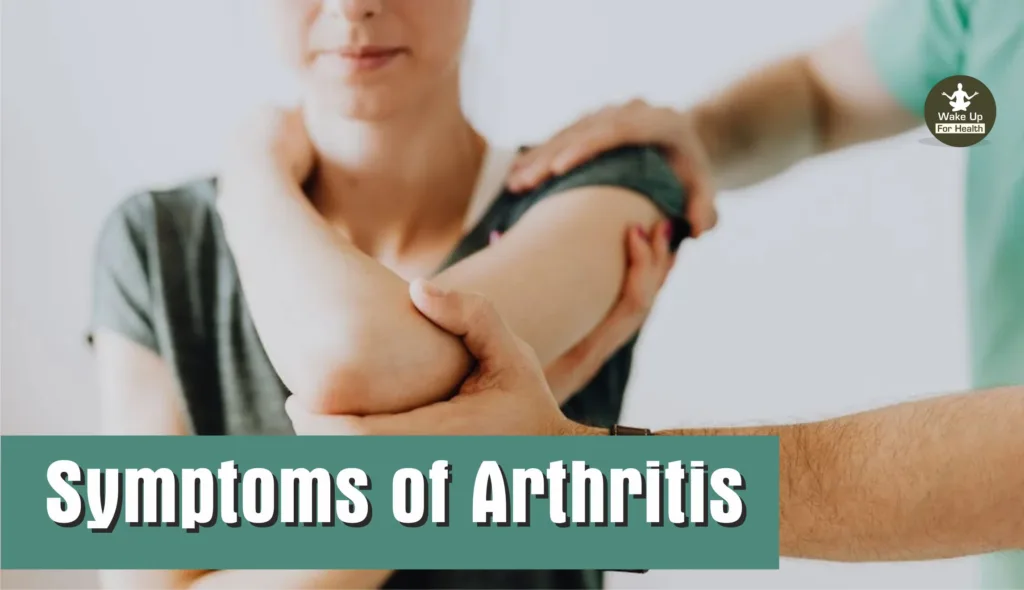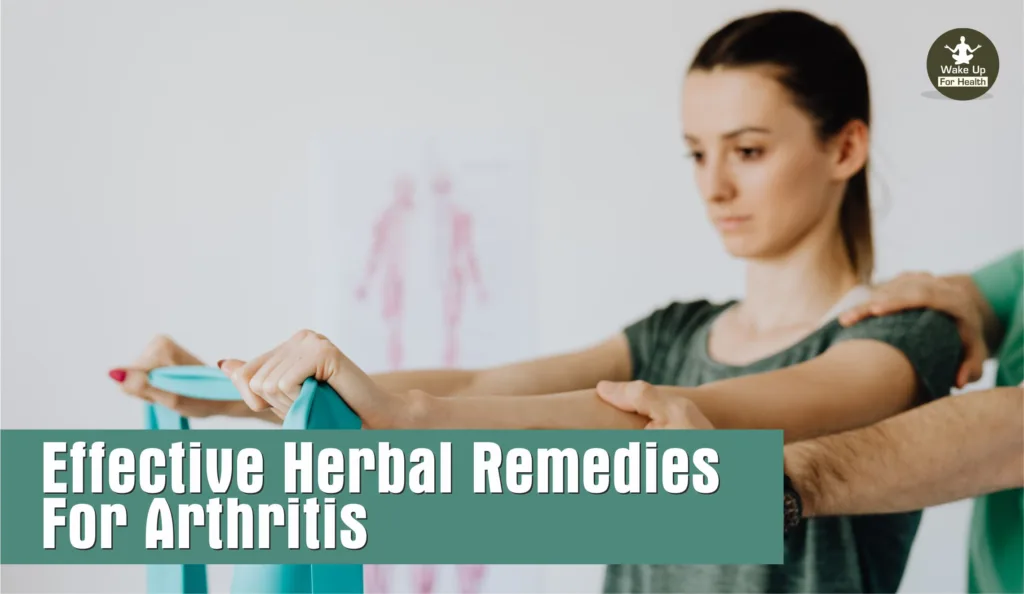Arthritis is a term used to describe a group of conditions that cause inflammation in the joints. It can cause pain, stiffness, and difficulty in movement. The disease that puts brakes in a fast-paced life is called Arthritis. Means joint pain which starts dominating the body with increasing age. Often people do not diagnose this disease properly, due to which patients unknowingly consume some such medicines like powder, pain relief pills, etc. Over time, this disease can take a fatal form. Therefore, first of all awareness is needed to deal with this disease. Let’s know what is arthritis, arthritis symptoms, types, causes and home remedies.

Types of Arthritis, Symptoms, Causes, Treatment Options, Home Remedies
Arthritis is a disease occurring in the elderly which is increasing day by day. The most prevalent form of this disease is “Osteoarthritis”. In the changing lifestyle, this disease is also taking the youth in its grip. The onset of this disease is due to deficiency of Vitamin D, in which the patient complains of pain in the joints.
Metabolism is caused by distortion. In this, the amount of uric acid in the blood increases. These amounts accumulate in the uric acid joints while the person is sleeping or sitting in the same posture for a long time, which causes pain, and gradually they take the form of arthritis in the body. Due to negligence, sometimes knee and hip implants may also be needed. That’s why joint pain should not be ignored. In case of any joint problem, an orthopedic specialist should be consulted.
How Many Types of Arthritis?
There are many different types of arthritis, and each type has its own set of characteristics and treatment options. Some of the most common types of arthritis include:
1. Osteoarthritis:
This is the most common type of arthritis, and it is caused by the wear and tear of the joints over time. It typically affects the joints in the hands, feet, spine, and hips.
2. Rheumatoid Arthritis
This is an autoimmune disorder that causes the body’s immune system to attack the joints, leading to inflammation and damage. It typically affects the joints in the hands, wrists, and feet.
3. Gout
This is a form of arthritis that is caused by the buildup of uric acid crystals in the joints, which can cause sudden, severe attacks of pain. It typically affects the joints in the toes, ankles, and knees.
4. Ankylosing Spondylitis
This is a form of arthritis that affects the spine, causing inflammation and pain. It can lead to the fusion of the vertebrae, resulting in a stiff and inflexible spine.
5. Psoriatic Arthritis
This is a form of arthritis that occurs in people with psoriasis, a skin condition that causes red, scaly patches. It typically affects the joints in the fingers and toes, as well as the spine.
6. Lupus
This is an autoimmune disorder that can cause inflammation in various parts of the body, including the joints, skin, and internal organs. It can also cause other symptoms, such as fatigue, fever, and a butterfly-shaped rash on the face.
7. Scleroderma
This is a condition that causes the skin to become thick and hard, and it can also affect the blood vessels, internal organs, and joints.
8. Fibromyalgia
This is a condition that causes widespread pain and tenderness, as well as fatigue and sleep problems. It is not considered a form of arthritis, but it is often associated with joint pain and other symptoms similar to those of arthritis.
What Are The Symptoms of Arthritis?
Also A Good Read : Periodontitis: Symptoms, Causes, and Effective Treatment

The symptoms of arthritis can vary depending on the type of arthritis, but some common symptoms include:
1. Pain
This can range from mild to severe, and it may be constant or intermittent.
2. Stiffness
This is often worse in the morning and after periods of inactivity.
3. Swelling
This can occur in the joints, and it may be accompanied by redness and warmth.
Decreased range of motion: This can make it difficult to move the affected joints.
4. Fatigue
This can be a result of the inflammation and pain associated with arthritis.
5. Fever:
Some types of arthritis, such as rheumatoid arthritis, can cause a low-grade fever.
6. Weight Loss
Some people with arthritis may lose weight as a result of the inflammation and pain.
7. Weakness
This can be a result of the inflammation and pain, as well as the decreased use of the affected joints.
If you are experiencing any of these symptoms, it is important to talk to a doctor. They can help diagnose the cause of your symptoms and recommend treatment options.
What Are The Prevention of Arthritis?
There is no sure way to prevent all types of arthritis, but there are steps you can take to reduce your risk:
1. Maintain a Healthy Weight
Being overweight or obese can put extra strain on your joints, which can increase your risk of developing osteoarthritis.
2. Exercise Regularly
Regular physical activity can help reduce the risk of developing osteoarthritis and may also help improve symptoms in people who have arthritis.
3. Eat a Healthy Diet
A diet that is rich in fruits, vegetables, and whole grains, and low in processed and sugary foods, can help reduce inflammation and improve overall health.
4. Avoid Smoking
Smoking can increase the risk of developing rheumatoid arthritis and can also make symptoms worse in people who already have the condition.
5. Protect Your Joints
Take steps to avoid joint injuries, such as wearing protective gear when participating in sports or using proper lifting techniques.
6. Get Vaccinated
Some types of arthritis, such as rheumatoid arthritis, have been linked to infections. Getting vaccinated can help reduce the risk of developing these infections.
Most Effective Prevention of Arthritis
• Getting 8 hours of sleep daily.
• Avoiding standing or sitting in the same position for a long time.
• Avoid sitting in a position that puts stress on the affected joints.
• Consume fruits and vegetables which are rich in vitamins and minerals. Specialty that also contains Vitamin E.
• Avoid sitting in a position or making movements that may put stress on the affected joint.
• Include omega-3 fatty acid foods in the diet such as flaxseed, soybean, pumpkin seeds and walnuts. Use canola and soybean oil along with it.
It’s important to note that even if you take these steps, you may still develop arthritis. However, following a healthy lifestyle can help reduce your risk and may also help manage symptoms if you do develop the condition.
What is the Treatment of Arthritis?
The treatment of arthritis depends on the type of arthritis and the severity of the symptoms. Some common treatment options include:
1. Medications
Nonsteroidal anti-inflammatory drugs (NSAIDs) and acetaminophen can help reduce pain and inflammation. Other medications, such as disease-modifying antirheumatic drugs (DMARDs) and biologics, can be used to slow the progression of certain types of arthritis, such as rheumatoid arthritis.
2. Physical Therapy
This can help improve range of motion, strength, and flexibility in the affected joints.
3. Exercise
Regular physical activity can help reduce pain and stiffness, and it may also help improve overall function.
4. Heat and Cold Therapy
Using heat or cold on the affected joints can help reduce pain and stiffness.
5. Assistive Devices
Using devices such as canes, walkers, and handrails can help reduce the strain on the affected joints and make it easier to move around.
6. Surgery
In some cases, surgery may be necessary to repair or replace damaged joints.
It is important to work with a doctor to determine the best treatment plan for your specific needs. In some cases, a combination of treatments may be necessary to effectively manage symptoms.
What are the Home Remedies for Arthritis?
There are several home remedies that may help reduce pain and inflammation in people with arthritis. These remedies are not meant to replace medical treatment, but they may be used in conjunction with prescribed medications to help manage symptoms. Some home remedies for arthritis include:
1. Heat and Cold Therapy
Using heat or cold on the affected joints can help reduce pain and stiffness.
2. Exercise
Regular physical activity can help reduce pain and stiffness, and it may also help improve overall function.
3. Weight Loss
Losing excess weight can help reduce the strain on the affected joints.
4. Diet
A diet that is rich in fruits, vegetables, and whole grains, and low in processed and sugary foods, can help reduce inflammation and improve overall health.
5. Massage
Massaging the affected joints can help reduce pain and stiffness.
6. Acupuncture
This ancient Chinese practice involves the insertion of thin needles into specific points on the body to help reduce pain and improve function.
Effective Herbal Remedies For Arthritis

Some herbs, such as turmeric and ginger, may have anti-inflammatory properties and may help reduce pain and swelling in the joints.
1. Water:
Drink more and more water to balance the amount of uric acid in the body.
2. Garlic:
Taking 3-4 cloves of raw garlic on an empty stomach is beneficial. Apart from this, take two grams each of rock salt, cumin, asafoetida, peepal, black pepper and dry ginger and grind them well and fry this paste in castor oil and fill it in a bottle, massage it on the painful area. Will get rest.
3. Ginger :
Eat raw ginger along with daily food, apart from this, applying ginger oil on the painful area is also beneficial.
4. Massage with Oils :
Boil garlic in mustard oil and then apply it, it will be beneficial. Heat garlic oil, add onion juice to it and rub it on the joints. After this, cover it with a plastic cover and wrap a hot towel. Do this treatment before sleeping, it will be beneficial.
5. Aloe Vera Gel :
Apply aloe vera gel on the painful area. There will be benefit.
6. Turmeric :
Drink turmeric milk, apart from this, a decoction of turmeric and ginger is a panacea for arthritis. Turmeric and ginger both have anti-inflammatory properties. For this, take two cups of water and boil it by adding half teaspoon ginger and half teaspoon turmeric. Add honey to avoid astringent taste.
7. Eucalyptus Oil :
Massage with eucalyptus oil before sleeping. It is very beneficial for arthritis.
8. Steam :
Can bake with steam in arthritis. For this, put hot water in a bucket and take steam.
It is important to speak with a doctor before trying any home remedies, as some may interact with medications or have side effects.
What are the Therapies and Surgeries for Arthritis?
1. Physiotherapy
Physiotherapists can be helpful in improving muscle strength and joint flexibility. Physiotherapy using hot or ice packs, or transcutaneous electric shock (TENS) can provide pain relief. A TENS machine delivers electric vibrations to painful joints, which numbs the nerve and may help reduce arthritis pain.
2. Occupational Therapy
Counseling from an occupational therapist helps in providing joint care both at home and in the office.
3. Podiatrist
If there is foot pain, a podiatrist can help. In this, support can be given to the joints or soles of shoes, which can provide relief in pain.
4. Surgery
Various types of surgeries are performed to cure joint pain, hand and foot problems.
• Carpal Tunnel Release
• Loosening the tendons of the fingers to treat crookedness.
• Removal of tissue that lines the finger joints.
• Arthroscopy
• Arthroscopy is a procedure to remove the inflamed tissue.
• During the operation, a thin tube with a laser light and camera is inserted through a cut in the skin to visualize the affected joint.
5. Joint Replacement
Surgery is needed to replace part or all of a hip, knee or shoulder joint in a patient with arthritis. It is also known as joint replacement or arthroplasty. New couples have a lifespan of 10–20 years. They are not perfect, there is also a possibility that even after replacing the bad joints with new joints, they may not work as before.
(Disclaimer : The purpose of this health-related article is to wake you up and aware of your health and to provide health-related information. Your doctor has a better understanding of your health and there is no substitute for their advice.)
1 thought on “Arthritis: Symptoms, Types, and Effective Treatments”